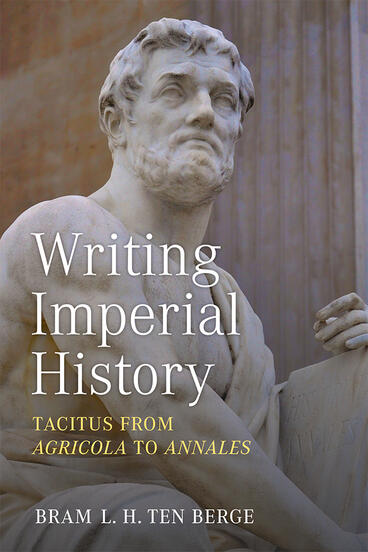Writing Imperial History
Tacitus from Agricola to Annales
Analyzes how Tacitus contributed to our current understanding of history and reveals the themes that permeated his writing
Description
The late first- and early second-century Roman senator and historian Cornelius Tacitus, whom Edward Gibbon described as “the first of the historians who applied the science of philosophy to the study of facts,” shaped the development of the modern understanding of history as a crucial vehicle for social analysis. The breadth of his thinking is fully revealed only through analysis of how the political, geographical, and rhetorical theories expounded in his early works influenced his later narrative of the evolution of the Roman monarchy. Tacitus, who was one of the oratorical luminaries of his time, produced a collection of works widely recognized as offering the most authoritative account of Rome’s early imperial history. His oeuvre traditionally is divided into the so-called minor and major works. Writing Imperial History offers the first comprehensive analysis of Tacitus’ five texts and their interconnections and serves to confront longstanding assumptions that have led to a fundamental misunderstanding of the nature and development of his oeuvre and historical thinking. Tracing many of the enduring themes and concerns that Tacitus explores across his works, the book shows how the vision articulated in his earlier texts persists in his later ones and how he used the former as sources for the latter.
Bram L. H. ten Berge is Assistant Professor of Classics at Hope College. He specializes in Roman history and historiography (especially Tacitus).
Reviews
“The author’s writing is clear and straightforward, and his knowledge of Tacitean scholarship is also impressive. Overall, the book is peppered with interesting insights. Ten Berge is a diligent and careful scholar.”
- Eric Adler
—Eric Adler, University of Maryland
News, Reviews, Interviews
Read: Author Blog post "Tacitus for the 21st century" | August 14, 2023

